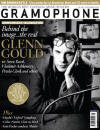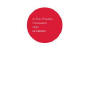Texte paru dans: / Appeared in:
*

GRAMOPHONE (09/2012)
Pour s'abonner /
Subscription information
Signum
SIGCD287

Consultez toutes les évaluations recensées pour ce cd
~~~~ Reach all the evaluations located for this CD
Reviewer: Lindsay Kemp
McCreesh remakes his landmark coronation album
‘A Venetian Coronation’ (Virgin, 5/90), a re-creation of the music for the coronation of Doge Marino Grimani in 1595, was Paul McCreesh’s breakthrough release, winning him a Gramophone Award and establishing his reputation as a master of the scholarly and exciting liturgical reconstruction. His reasons for returning to h now seem to be a desire to reflect changes 20 years have brought in playing styles and abilities, to incorporate some musicological tweaks and, in a few cases, to restore the order of items that he originally intended.
So what bas changed? Well, the contents are essentially the same, with Mass movements by Andrea Gabrieli at the core, interspersed with plainchant and motets, organ toccatas and ensemble canzonas by Andrea and his nephew Giovanni. The ordering of items is slightly altered but not massively so, perhaps the most noticeable difference being the increased time it takes (15 minutes) to reach some polyphony. This is partly due to a lengthened preamble — not just church bells this time but outdoor crowd noises (rather polite ones), fireworks and some woodwind intradas. But Andrea’s vocal music is still solemn and effortlessly beautiful, and Giovanni’s Omnes gentes still blows you away, while his canzonas continue to startle with their fantasy and modernity. If there is a notable change in character, it would be in stronger atmosphere, a clearer realisation of McCreesh’s long-made point that this music was principally intended not to echo round every corner of St Mark’s but to please the ears of the few dignitaries at the centre of proceedings. The overall sound has a softer edge too, and if the new recording has less of the crowd-pleasing theatrical edge of before, there are gains in the subtler riches and overall know-how: McCreesh’s feel for the shifting colours of polychoral music was always firm but he finds extra variety here with greater use of solo voices — most memorably in Andrea’s O sacrum convivium.
The many who treasure that first recording should feel no need to discard it; but this second, with its new wisdoms and refinements, certainly has its place.
Cliquez l'un ou l'autre
bouton pour découvrir bien d'autres critiques de CD
Click either button for many other reviews


